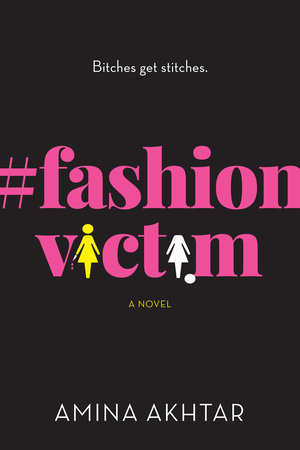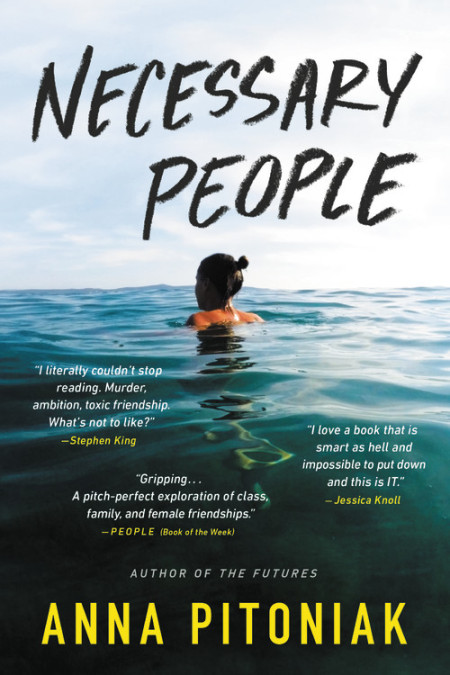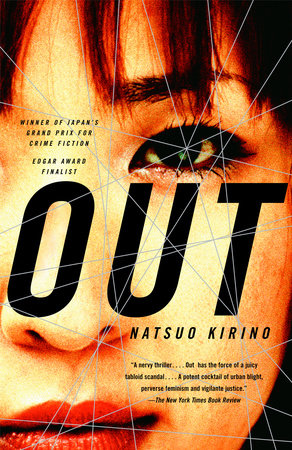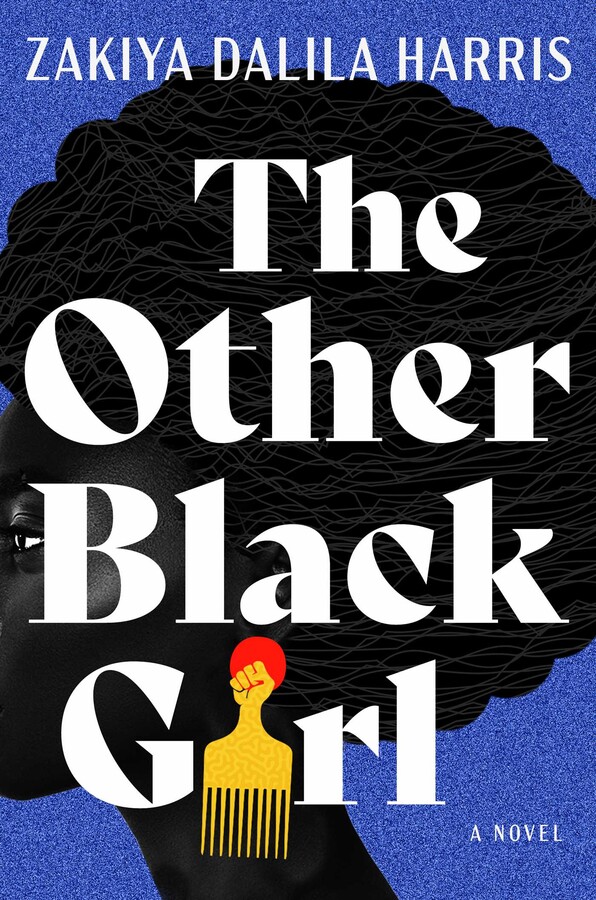If you enjoy reading Electric Literature, join our mailing list! We’ll send you the best of EL each week, and you’ll be the first to know about upcoming submissions periods and virtual events.
“So I bit a coworker yesterday. Obviously, I’m mortified.”
This is the opening line of a legendary letter written to the advice blog Ask a Manager, which I read religiously despite the fact that it’s been ages since I worked in an office. The infamous “I bit my coworker” letter is a case study in the lengths to which people may be driven by a toxic work environment. Work is where we spend the majority of our waking hours. When a job is miserable, we adjust ourselves because we have to, but those adjustments can change us in unexpected ways. I love that Ask a Manager letter because it shows an otherwise rational human being becoming suddenly feral, childish, and violent, in a way that’s all too easy to imagine.
Well, I can imagine it, anyway. I’ve had a lot of jobs in my life: waitress, high school teacher, receptionist, drugstore cashier. I’ve been a fraud detector for online reviews. I’ve temped everywhere on earth, from glossy ad agencies to libraries, media conglomerates to fire alarm vendors. I’ve been a fashion writer and a seasonal gift-wrapper and once even posed nude for a life drawing class (I threw out my back and never did it again). Each workplace had its quirks, but only a few truly qualified as toxic. The most toxic of all, for me, was grad school, where I set my latest thriller, Bad Habits.
What makes a workplace toxic? There are a few common factors: A rigidly enforced hierarchy, with a huge gap between the well-being of the top and bottom workers and significant obstacles to advancement; an emphasis on the “good of the company” over workers’ health and safety; poor boundaries between personal life and work life. In a toxic workplace, “bad apples” are coddled rather than kicked out; bosses are allowed to become petty tyrants, passive-aggressive co-workers hold the supply closet hostage, and harassment and abuse are swept under the rug rather than punished.
Thrillers set in toxic workplaces will always fascinate me, because they illustrate what we already know from that Ask a Manager letter: that a corporation doesn’t have to be operating outside the law to drive its employees to desperate acts. The books on this list aren’t like the eponymous “firm” of the John Grisham novel; for the most part, there are no massive, company-wide conspiracies or cover-ups. Instead, these books show the toxicity so ingrained in company cultures that most people never even question it. Unsurprisingly, many books on this list were written from the points of view of women and minorities in the workforce, for whom “business as usual” frequently means discrimination and marginalization.
These books revel in the dirty details of how people get and stay ahead, expose the hypocrisies of corporate power structures, and imagine what would happen if the grunt in the next cubicle really meant it when she said she’d kill for that promotion. I like to think that if she did, her story would start: “So I murdered a coworker yesterday. Obviously, I’m mortified.”
Fashion Magazine: #FashionVictim by Amina Akhtar
Thanks to The Devil Wears Prada, we all think we know a little something about the nastiness of the fashion world, but La Vie—the fashion mag in Amina Akhtar’s darkly comic debut #FashionVictim—makes Miranda Priestly’s viper pit look like a safe space. A former Elle editor herself, Akhtar’s book echoes recent revelations in the New York Times and Andre Leon Talley’s memoir The Chiffon Trenches that at top fashion magazines, beauty, wealth, thinness, and whiteness are prized over talent, and outsiders are kept firmly in their place. It’s enough to make you want to murder someone—especially if you’re a little hangry from skipping lunch to fit into sample-size Prada. Assistant editor Anya understands that in a workplace this toxic, only a sociopath can make it to the top: “God, there was always so much work to do. Update this, kill so-and-so,” she complains. An editor’s work is never done.
Law Firm: Whisper Network by Chandler Baker
Four women working at the same corporation—three as in-house lawyers and one as an office cleaner—are shaken to the core when their serial-harasser boss, the head of General Counsel, seems set to take over as CEO of the whole company. The multiple POVs, mom woes, and snippets of depositions and police interviews in Chandler Baker’s debut recall Big Little Lies, but the Greek chorus of working women’s voices describing the endless maze of small and large indignities they have to navigate in corporate life make it feel almost like a manifesto at times. More than just the sleazeball partners whose names circulate among the women via a secret list reminiscent of the Shitty Media Men list that made news in 2018, it’s the interruptions, the chronic undermining and credit-stealing, and the delegation of secretarial tasks to female VPs that render this particular brand of toxic workplace all too believable.
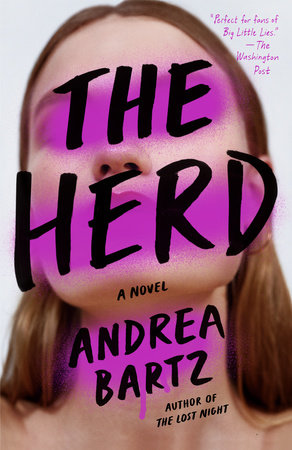
Co-Working Space: The Herd by Andrea Bartz
A trendy co-working space painted #GirlBoss pink is the perfect backdrop for a brand-optimizing Instagram pic—or a murder. The flawless, “lean-in”-style CEO of The Herd—an exclusive all-women’s workspace about to go public—vanishes just when she’s supposed to be announcing the big news to the shareholders. Recalling news stories about a rash of women CEOs accused of creating toxic work environments and exploiting their female employees’ labor like the best (or worst) of their male counterparts, Andrea Bartz’s The Herd points up the hypocrisy of corporate feminism and asks whether co-opting “girl power” as a marketing strategy can ever be anything but a sham.
Cable Newsroom: Necessary People by Anna Pitoniak
There’s something about newsrooms that makes for riveting drama, and the rise of cable news is particularly enticing—maybe because the idea of pulling back the curtain on the people who craft the narratives carries an extra frisson right now. Anna Pitoniak’s NECESSARY PEOPLE, though at its heart a classic story of toxic friendship, shows how the feverish ecology of the newsroom—a delicate balance between the talent (clever, hotheaded, a little shallow), the producers (Machiavellian behind-the-scenes types) and the money (new or old, the buck stops here)—fans the flames of jealousy and magnifies inequalities.
Tech Start-up: One by One by Ruth Ware
Tech companies, as all viewers of Silicon Valley know, are their own special brand of toxic workplace. Nerdy brogrammers, buzzword-juggling VC-magnet CEOs, upbeat influencers, and early stakeholders who just happened to be in the room at the right time make for a heady mix of personalities. Add the notorious chauvinism of the tech world and the high stakes of multi-million-dollar buyouts, and you’ve got a perfect setup for a murder. Ruth Ware’s One by One brilliantly isolates the employees of a hot new music app in a luxurious, remote ski retreat in the French Alps for a working retreat—itself one of the indignities-disguised-as-perks of the modern workplace. The scene quickly devolves into the kind of addictive, locked-room, Agatha Christie-plus-action thriller for which Ware is famous.
Factory: Out by Natsuo Kirino
The women of Natsuo Kirino’s thriller Out all work the night shift at a depressingly dull factory that makes pre-packaged lunches, and the descriptions of their unappetizing and repetitive work on the assembly line bring home to the reader how little leeway or control they have in their personal lives. Each of the women is desperate in her own way, or else she wouldn’t be there; and when one cog in the machine snaps, the ripple effect throws everyone’s lives out of sync. By turns exhilarating and horrifying, Out presents its female characters’ lives as chillingly circumscribed, and murder as just one more reason to feel exhausted at work the next day.
Medical Research Center: Lakewood by Megan Giddings
Where I went to college in Austin, there was a giant billboard for a medical trial center right next to campus. The message was simple: need cash? Be a lab rat. I knew lots of people who took them up on it. (Ask me about the guy who got his wisdom teeth taken out for free—and was given a placebo painkiller.) Megan Gidding’s sly debut Lakewood not only capably explores the creep-factor inherent in such exchanges, but also the racial inequalities that it exploits. Tapping into real anxieties about America’s history of using Black bodies as unwilling guinea pigs, Giddings manages to create not one toxic workplace, but two—the sinister lab itself, and the hilariously generic front company, where protagonist Lena and her fellow lab rats are forced to pretend to work in cubicles and have fake arguments about who’s stealing yogurt out of the break room fridge. It’s a tour de force of grim, absurdist office satire.
Theater Company: Temper by Layne Fargo
Theater people are the orchids of creative types: gorgeous and hotblooded, flamboyant yet fragile. But where personalities are larger than life and dedication to capital-A “Art” is the only thing that matters, boundary-crossing behavior can be justified in the name of “genius”—especially if the genius is a man. Layne Fargo’s debut—loosely inspired by a Chicago theater director who rained psychological, physical, and sexual abuse down on his colleagues for years—skillfully dissects the intense dynamics in a group of people who’ve fallen under the sway of a real-life art monster.
Wall Street Bank: The Escape Room by Megan Goldin
Is an all-day meeting your personal version of hell? Try a team-building exercise where you get trapped in an elevator with backstabbing colleagues, and your only goal is to make it out alive. Goldin’s full-throttle locked-room thriller has a grabby premise, but it’s the depictions of the cult of rampant, amoral greed at a top Wall Street firm that make this book compulsively readable.
Upcoming Titles
Publishing House: The Other Black Girl by Zakiya Dalila Harris
In this deliciously scathing send-up of the blindingly white world of New York City book publishing, a big house hires their second Black editorial assistant, and chaos ensues.
Law Firm: All Her Little Secret by Wanda M. Morris
Okay, there just might be a conspiracy in this twisty psychological thriller set in a corporate law firm. But unlike The Firm, the main character of Wanda Morris’s debut is the only Black attorney at her company—and, unlike Tom Cruise, this gives her a reason to be paranoid before the first gunshot.


